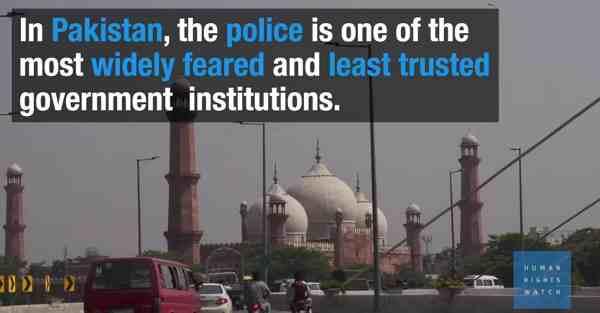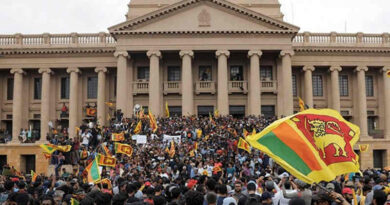Pakistan Urged to Address Human Rights Issues

Close on the heels of United Nations’ (UN) advice to Pakistan to protect the human rights in the country, leading human rights organization Human Rights Watch (HRW) says Obama administration should press Pakistan’s government to address both new and longstanding human rights problems.
In this regard, HRW has written a letter to US Secretary of State John Kerry, who was supposed to meet Pakistani Prime Minister Nawaz Sharif Wednesday for US-Pakistan Strategic Dialogue in Pakistan’s capital, Islamabad.
[ Left Parties to Protest Against President Obama’s Visit in India ]
UN Secretary-General Ban Ki-moon has also called on the Government of Pakistan to bring an end to the executions of all convicts and re-impose the country’s moratorium on the death penalty.
“A serious rollback in human rights in Pakistan has been under way since the horrific attack last month on a Peshawar school,” said Phelim Kine, deputy Asia director. “The US-Pakistan dialogue is a good opportunity for Kerry to press the Pakistan government not to sacrifice basic human rights and fair trials in the name of confronting terrorism.”
According to HRW, the government’s response to the Peshawar school attack on December 16, 2014, has included a constitutional amendment allowing the prosecution of civilian terrorism suspects in military courts.
[ No Nation Is Free of Human Rights Violations: Meenakshi Ganguly ]
The government has sought to justify the measure as a means to ensure “the speedy trial of terrorists.” Yet, as many Pakistani lawyers and judges have pointed out, Pakistan’s civilian courts are capable of handling terrorism cases so long as law enforcement authorities do their job, including conducting professional investigations and providing protection to witnesses, reported HRW.
The Pakistan government’s accelerating and injudicious impositions of the death penalty have also raised serious due process concerns. On December 17, Sharif rescinded a four-year unofficial moratorium on capital punishment for non-military personnel “in terrorism related cases,” instituted by then-President Asif Ali Zardari in 2008.
The Pakistani government has executed at least nine people following the school attack and there are reports that the government intends to execute dozens, and possibly hundreds more in the coming weeks.
Human Rights Watch says it opposes the death penalty in all circumstances as an inherently cruel and irrevocable punishment.




